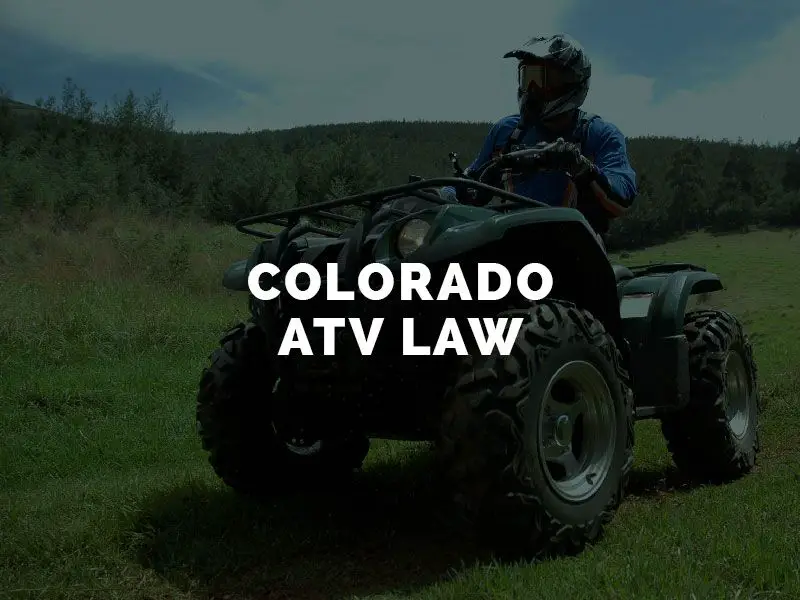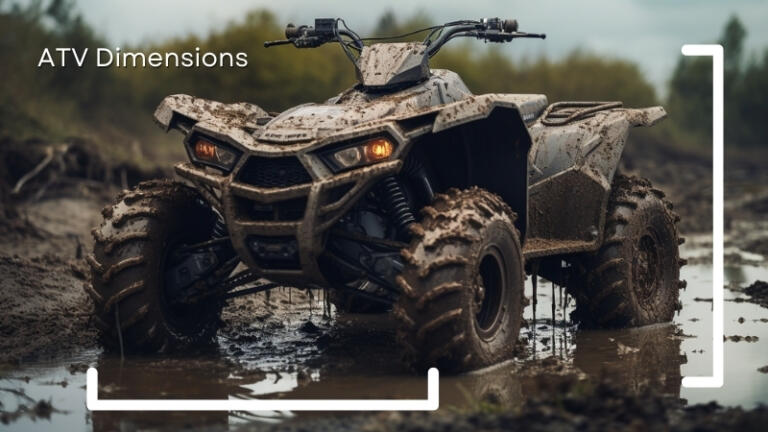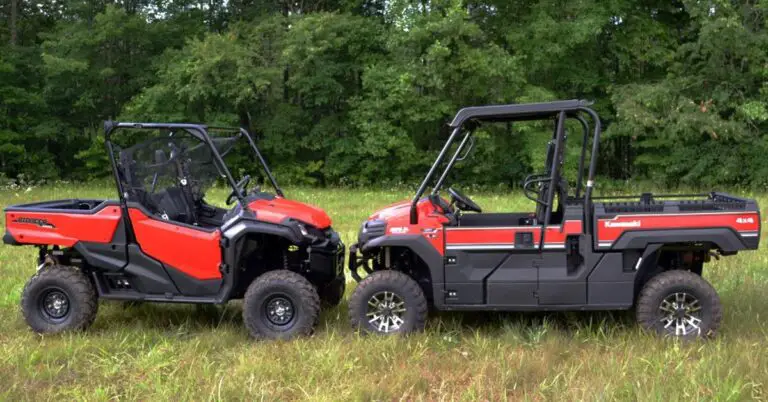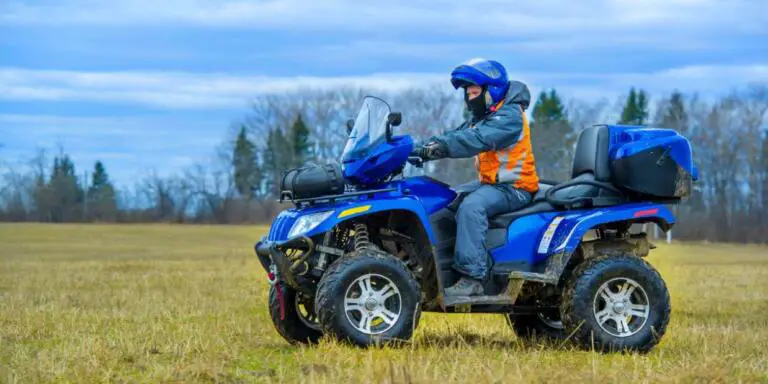Are Atvs Street Legal in Colorado
ATVs are not street legal in Colorado due to safety concerns and regulations. In Colorado, it is illegal to operate an ATV on public roads and highways as they are not designed or equipped for on-road use.
However, ATVs are allowed on designated off-road trails and private land with permission from the landowner. These off-road vehicles are popular for recreational activities such as trail riding and exploring the backcountry of Colorado. Despite their restrictions on public roads, ATVs provide an exciting and adventurous experience for outdoor enthusiasts in the state.
If you’re planning to ride an ATV in Colorado, make sure to follow the rules and regulations set by the Colorado Parks and Wildlife Department to ensure a safe and enjoyable experience.
Overview Of Atv Laws In Colorado
ATVs, or all-terrain vehicles, are regulated under specific laws in Colorado. Understanding these regulations is crucial to ensure compliance and safe usage. In Colorado, ATVs are generally not street legal, meaning they are not permitted to be operated on public roads. However, there are exceptions to this rule.
To provide an overview of ATV laws in Colorado, it is important to highlight key regulations pertaining to their usage on public roads. ATVs must comply with specific requirements to be considered legal for street use. Such requirements include the installation of headlights, taillights, turn signals, mirrors, and a horn. Additionally, ATVs must have proper insurance coverage and be registered with the Colorado Parks and Wildlife Department.
Furthermore, it is essential to note that restrictions on ATV usage are imposed in certain areas. National parks, national forests, and state parks often have specific rules and regulations regarding the use of ATVs. It is crucial to familiarize yourself with these restrictions and comply with them to protect the environment and ensure public safety.
Remember to always prioritize safety when operating an ATV and follow the regulations set forth by the state of Colorado. By doing so, you can enjoy your ATV while minimizing risks and adhering to the law.
Requirements For Making Atvs Street Legal In Colorado
ATVs, or all-terrain vehicles, are a popular mode of transportation in Colorado. However, it is important to understand the requirements for making ATVs street legal in the state. To legally ride an ATV on public roads in Colorado, you must comply with certain registration and titling requirements. This involves completing the necessary paperwork and paying the required fees. Additionally, as an ATV owner, you are required to obtain a license and insurance for your vehicle. The licensing process may vary depending on your age and whether you have any prior driving offenses. Furthermore, Colorado law mandates that street-legal ATVs must be equipped with certain safety equipment. This includes headlights, tail lights, brake lights, turn signals, and reflectors. It is crucial to ensure that your ATV meets all the necessary safety standards before riding it on public roads in Colorado.
Off-road Vs. Street-legal Atvs In Colorado
When it comes to owning an ATV in Colorado, it’s important to understand the differences between off-road and street-legal ATVs. An off-road ATV is primarily designed for recreational use on trails and private property, while a street-legal ATV is equipped with additional features and modifications that allow it to be driven on public roads as well.
Off-road ATVs often have larger tires, more suspension travel, and higher ground clearance, making them better suited for navigating rough terrain. They may also lack certain safety features required for street use, such as turn signals, mirrors, and a horn.
On the other hand, a street-legal ATV is equipped with the necessary equipment and modifications to meet state regulations, including headlights, taillights, brake lights, a horn, signals, and rearview mirrors. This allows the owner to ride the ATV on public roads and access different areas without having to tow the vehicle.
However, owning a street-legal ATV also comes with certain advantages and disadvantages. It provides the flexibility to travel between off-road trails and use the ATV for everyday transportation. It can be a cost-effective solution for those who don’t want to invest in two separate vehicles. However, the added equipment and modifications can increase the overall cost of the ATV.
Ultimately, whether you choose an off-road or street-legal ATV in Colorado depends on your specific needs and preferences. Make sure to research the state’s regulations and consider factors such as terrain, transportation requirements, and budget before making a decision.
Pros And Cons Of Street-legal Atvs In Colorado
Benefits of using street-legal ATVs for recreational purposes:
- Increased versatility: With a street-legal ATV, you can seamlessly transition between off-road trails and public roads, giving you more freedom to explore.
- Convenience: Street-legal ATVs allow you to easily travel to and from your favorite recreational areas without the need for additional transportation.
- Cost savings: Owning a street-legal ATV eliminates the need for separate vehicles for off-road and on-road use, potentially saving you money in the long run.
- Access to more areas: Street-legal ATVs provide access to a wider range of terrain and destinations, giving you the opportunity to discover new trails and experience different landscapes.
Potential drawbacks and challenges of owning a street-legal ATV:
- License and registration requirements: Street-legal ATVs must be registered and meet certain criteria to be legally operated on public roads. This process can involve additional costs and paperwork.
- Safety concerns: Operating an ATV on public roads carries inherent risks, such as increased exposure to traffic and potential accidents. Safety precautions, such as wearing proper gear and being vigilant, are essential.
- Restrictions on use: While a street-legal ATV provides more freedom, there may still be specific limitations on where and when you can ride, such as restricted trails or specific road laws.
- Maintenance and upkeep: Street-legal ATVs require regular maintenance to ensure they remain in good working condition and comply with legal requirements. This includes regular inspections, maintenance checks, and necessary repairs.
Popular Street-legal Atv Models In Colorado
Colorado has specific regulations regarding the use of ATVs on public roads. To ensure compliance and enjoy the off-road experience legally, it’s important to select a street-legal ATV model. Here is an overview of popular ATV brands and models suitable for street use in Colorado:
| Brand | Model | Performance | Price | Reliability |
|---|---|---|---|---|
| Honda | FourTrax Foreman | Powerful engine, excellent handling | Mid-range pricing | Highly reliable |
| Polaris | Sportsman Touring | Smooth ride, versatile | Higher price range | Dependable performance |
| Kawasaki | Brute Force | Impressive power, great traction | Competitive pricing | Durable and trusted |
These ATV models offer a good balance of performance, price, and reliability for street use in Colorado. Make sure to check with your local regulations and always adhere to safety guidelines while operating ATVs on public roads. With a street-legal ATV, you can explore Colorado’s beautiful scenery and enjoy off-road adventures within the legal boundaries.
Maintaining And Inspecting Your Street-legal Atv In Colorado
Regular maintenance is essential to ensure both optimal performance and safety when operating your street-legal ATV in Colorado. Keeping up with maintenance tasks will not only extend the lifespan of your vehicle but also help avoid costly repairs down the line. Here are some tips to keep in mind:
- Regularly inspect your ATV: Before each ride, thoroughly inspect your ATV for any signs of damage or wear. Pay attention to the tires, brakes, lights, and any other essential components.
- Check fluids and maintain proper levels: Regularly check the levels and condition of fluids such as oil, coolant, and brake fluid. Top up or replace as needed to ensure smooth operation.
- Keep the ATV clean: Regularly wash your ATV to remove dirt, mud, and debris that can accumulate and affect performance. This will also help prevent corrosion.
- Follow manufacturer’s maintenance schedule: Consult the ATV’s manual and adhere to the recommended maintenance schedule. This will ensure all necessary maintenance tasks are performed at the right intervals.
- Comply with state regulations: Colorado has specific requirements for street-legal ATVs. Make sure your ATV meets all the necessary criteria, including proper lighting, registration, and insurance.
- Perform required safety inspections: Regularly have your ATV inspected to ensure compliance with state regulations and to maintain its street-legal status. This may include inspections for emissions, brakes, and other safety requirements.
By staying on top of regular maintenance and inspections, you can enjoy a safe and smooth riding experience with your street-legal ATV in Colorado.
Important Safety Considerations For Street-legal Atv Owners
When it comes to riding ATV’s on the streets of Colorado, it is crucial to prioritize safety. Owners of street-legal ATVs should always ensure they have the proper safety gear before hitting the road. This includes wearing a helmet, protective eyewear, and durable clothing like gloves and boots.
Additionally, acquiring proper training is vital for ATV riders to understand the recommended safety precautions and techniques. Learning from certified instructors can help riders master the essential skills required for safe riding on public streets. This training provides knowledge on maneuvering and braking techniques as well as awareness of potential road hazards.
Riders must also ensure that their ATV is equipped with necessary safety features such as lights, mirrors, and turn signals. These additions enhance visibility and alert other road users of their presence.
Riding Atvs Responsibly On Colorado Streets
Riding ATVs responsibly on Colorado streets means adhering to traffic laws and regulations to ensure the safety of yourself and others. It is important to respect other motorists and pedestrians while riding on public roads.
Faqs About Street-legal Atvs In Colorado
Are ATVs street legal in Colorado? Yes, ATVs can be made street legal in Colorado, but certain conditions must be met to comply with state laws. Here are some common questions regarding the legality and usage of ATVs on streets in Colorado:
1. Do I Need To Register My Atv?
Yes, all ATVs operated on public streets in Colorado must be registered with the Colorado Parks and Wildlife Division.
2. Can I Ride My Atv On Any Street In Colorado?
No, not all streets are open to ATV usage. It is essential to check with local authorities or the specific county’s regulations to determine which streets permit ATV riding.
3. Do I Need A Driver’s License To Operate An Atv On The Streets In Colorado?
Yes, you need a valid driver’s license to operate an ATV on public streets in Colorado.
4. Is Insurance Required For Street-legal Atvs?
Yes, you are required to carry liability insurance coverage for your ATV to be legally operated on streets in Colorado.
5. Are There Any Additional Requirements For Street-legal Atvs?
Other requirements for street-legal ATVs in Colorado include proper lighting, reflectors, horn, mirrors, and having a street-legal exhaust system.
6. Can I Ride My Street-legal Atv On Highways Or Interstates?
No, ATV usage on highways and interstates is prohibited in Colorado.
7. Are There Any Age Restrictions For Operating Street-legal Atvs?
Yes, the minimum age to operate a street-legal ATV on Colorado streets is 16 years old.
8. What Are The Penalties For Non-compliance?
Operating a non-compliant ATV on public streets can result in fines and legal consequences, so it is crucial to adhere to Colorado’s regulations.
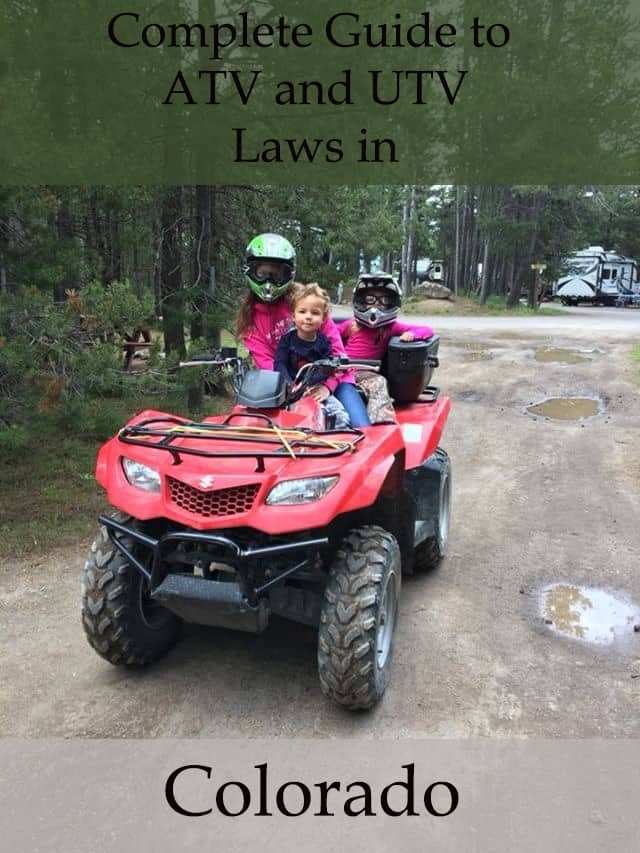
Credit: atvman.com
Frequently Asked Questions On Are Atvs Street Legal In Colorado
Are Atvs Street Legal In Colorado?
Yes, in Colorado, ATVs are allowed on designated roads, some county roads, and some forest roads. However, they must have specific features such as headlights, taillights, and rearview mirrors. It’s important to check local regulations to ensure compliance before riding on public streets in Colorado.
What Are The Requirements For Driving An Atv On The Street In Colorado?
To drive an ATV on the street in Colorado, you must have a valid driver’s license, and the ATV must be registered and insured. Additionally, the ATV must meet certain criteria, including having working lights, brakes, and a muffler. It’s crucial to familiarize yourself with the specific requirements to ensure legal compliance.
Are There Any Age Restrictions For Riding An Atv On The Street In Colorado?
Yes, to operate an ATV on the street in Colorado, you must be at least 16 years old and hold a valid driver’s license or an off-highway vehicle (OHV) safety certificate. It’s important to abide by these age restrictions to ensure safe and legal ATV riding in Colorado.
What Are The Penalties For Riding An Atv On The Street In Colorado Without Meeting The Requirements?
Riding an ATV on the street in Colorado without meeting the necessary requirements can result in penalties including fines and the impoundment of the ATV. Moreover, riders may face additional legal consequences if they are involved in accidents while operating illegally on the street.
It’s crucial to comply with all regulations to avoid these penalties.
Conclusion
ATVs in Colorado must adhere to specific regulations to be street legal. By understanding these guidelines, ATV enthusiasts can enjoy riding on designated roads and trails without breaking the law. Being aware of the necessary equipment, age restrictions, and insurance requirements is crucial for an enjoyable and legal riding experience.
Remember, staying informed about the rules and safety measures is key to preserving the balance between off-road fun and responsible riding on public streets.

